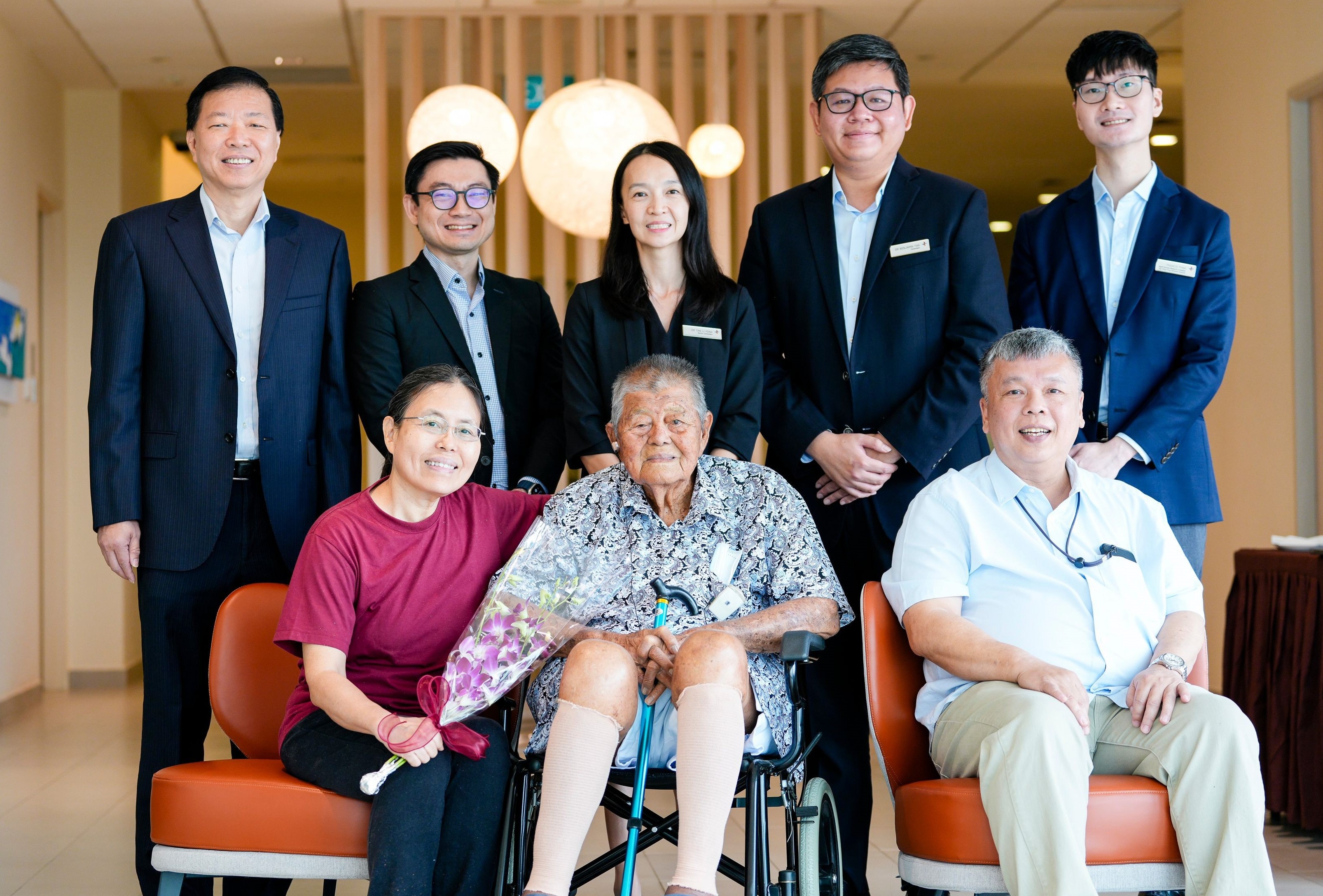 Subscribe and ensure you don't miss the next issue!
Subscribe and ensure you don't miss the next issue!
Many older adults and their families have the misconception that memory loss is an inevitable part of ageing. In reality, it can be the canary in the coal mine — a sign of cognitive decline that often goes unnoticed or unaddressed. With smaller family sizes and more older persons living alone, opportunities to recognise these changes are easily missed. This has contributed to what experts describe as a “hidden epidemic”. According to the 2023 Well-being of the Singapore Elderly (WiSE) study, more than half of dementia cases in Singapore remain undiagnosed.
To close this gap, the Innovative Methods for Proactive Risk Optimisation and adVancEment in Cognitive Health (IMPROVE-COG) project is harnessing artificial intelligence (AI) to detect risks earlier and support lifelong brain care. The project is led by a multidisciplinary team from the National University Hospital (NUH) and the National University Health System (NUHS), with Dr Benjamin Tan, Consultant, Division of Neurology, Department of Medicine, NUH, serving as a Co-Principal Investigator.
“An estimated 45 per cent of dementia cases are preventable through early lifestyle interventions,” says Dr Tan. “By harnessing the power of AI and large-scale data, we are developing a scalable and cost-effective solution for risk stratification and population health surveillance. This will enable us to proactively identify individuals at risk of mild cognitive impairment (MCI) and dementia, paving the way for earlier interventions and improved outcomes.”
AI and real-world data help bridge missed opportunities
One of the key challenges in dementia care lies in the missed opportunities for early detection. “Even when symptoms are present, they can be overlooked,” explains Dr Tan. “For example, a patient admitted for pneumonia may also be showing signs of cognitive decline flagged in therapists’ or social workers’ reports, but these may not be formally assessed. Relevant information is often fragmented, leaving pieces of the puzzle missing.”
The project involves the development of an AI-powered ensemble model that integrates a large language model, trained on anonymised real-world data from NUHS’s DISCOVERY AI platform. The model will be designed to interpret unstructured clinical documentation and integrate insights from diverse data sources in the electronic health record to identify individuals at risk of MCI and dementia. Upon development, the model will then be validated prospectively in memory and brain health clinics within NUHS institutions, including the University Brain Health Unit (UBHU) at the National University Hospital. Ultimately, this integration enables clinicians to “connect the dots” more effectively, supporting earlier diagnosis and intervention.
Beyond medical records, the project team will apply Geographic Information System mapping and spatial analysis to explore how environmental and social factors relate to brain health. These factors could include access to green spaces, exercise parks, community facilities and air quality. “These insights can guide more effective and equitable healthcare interventions, ensuring that prevention and support are shaped not just by biology but also by the environments people live in,” says Dr James Lee, Deputy Group Chief Technology Officer, Academic Innovation Office (AIO), NUHS, and Co-Investigator of the study.
Asia’s first digital brain care tool
Alongside AI-enabled screening, the project has also introduced Asia’s first culturally tailored Digital Brain Care Tool, designed to encourage individuals to take a more active role in safeguarding their brain health. Its two-pronged approach begins with the Brain Care Score, which allows users to track their brain health risk factors across physical, lifestyle and social-emotional domains. This includes risk factors from blood pressure and sleep to social engagement and stress levels.
The second component is the Brain Care Coach, which translates the individual’s Brain Care Score into practical, personalised guidance. By applying behavioural science techniques, it offers personalised recommendations on exercise, diet, sleep and cognitive stimulation, helping people build and sustain healthier routines over time.
Making these insights accessible to the public could help shift dementia care from late-stage treatment to lifelong prevention. For healthcare systems, the broader adoption of such tools can reduce the number of undiagnosed cases, improve population-level surveillance and ease the strain on specialist services.
“AI gives us the opportunity to turn how we approach dementia on its head — by promoting brain health throughout life, and being proactive in spotting cases and intervening early, instead of waiting until an individual has declined. We look forward to empowering every individual to understand their brain health, make informed choices and age well with dignity,” says Dr Chong Yao Feng, Consultant, Division of Neurology, Department of Medicine, Co-Investigator of the study, and clinical lead for the UBHU service.
Like this article? Simply subscribe to make sure you don't miss the next issue of EnvisioningHealth!




















